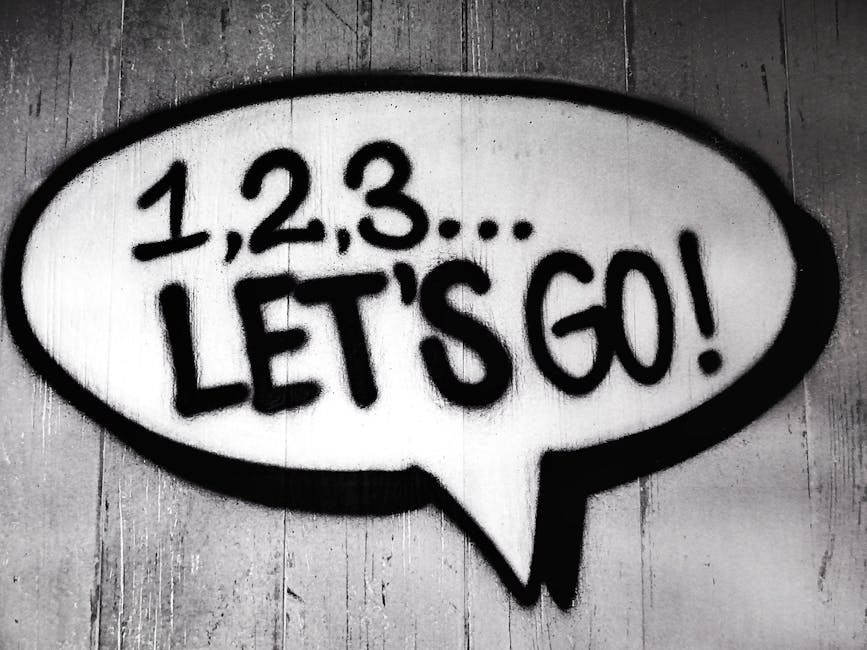Feeling shaky inside doesn’t mean you’re “crazy” – it means you’re human. Doubt can creep in quietly and stick around loudly, shaping choices, moods, and relationships. Many insecure women learn to live with that constant inner noise, yet the same people also have the capacity to turn the volume down and build a steadier sense of self. This guide reframes what insecurity is, highlights recognizable patterns, explores where those patterns often begin, and outlines practical steps for change. If you recognize yourself here, you’re not broken – you’re in the middle of a story you can rewrite.
What insecurity really means
Insecurity isn’t a character flaw; it’s a state of mind that says “I might not be enough” and then scans for proof. For some, that scan locks on appearance – hair, skin, weight, or style. For others, it fixates on competence – driving, public speaking, or simply making decisions under pressure. Telling someone their fear is irrational rarely helps because insecurity is personal; it attaches itself to experiences, memories, and interpretations that feel true in the body. Many insecure women notice that the feeling ebbs and flows – quiet for a while, then louder after a setback – which is why understanding triggers matters more than pretending the fear isn’t there.
Think of insecurity as an alarm system tuned too sensitively. It goes off when a text takes a little longer to arrive, when a colleague speaks confidently, or when a plan changes without warning. Turning the volume down doesn’t require perfection – it requires paying attention to what sets the alarm off and experimenting with new responses. That approach helps insecure women move from automatic reactions to deliberate choices.

Four common areas where insecurity shows up
Although insecurity can feel generalized, many people notice it cluster in a few familiar spaces. Recognizing the pattern gives you language – and language gives you leverage.
- Connection and commitment. Past heartbreak or betrayal can leave a lasting imprint, making affection feel conditional and closeness feel risky. In this space, insecure women may brace for impact even when nothing is wrong.
- Social dynamics. One-on-one, everything feels fine; in groups, the inner critic gets chatty. Small talk can feel like an exam, and silence can feel like a verdict.
- Body image. Pools, beaches, gyms, and fitting rooms act like mirrors that talk back. The gaze of others – or the gaze you imagine – can dominate your choices.
- Work and worth. Imposter feelings whisper that success is luck and praise is mistake. Even solid wins can feel fragile, as if one misstep will reveal “the truth.”
Why insecurity wears you down
Unchecked, insecurity drains energy and shrinks horizons. It nudges you toward rumination – replaying conversations, dissecting texts, and forecasting the worst. Over time, that habit breeds anxiety and low mood because the mind becomes a harsh weather system. In this climate, opportunities look like threats, compliments feel suspicious, and rest feels undeserved. Naming these patterns gives insecure women a chance to interrupt them – not with denial, but with different choices.
Recognizable signs to watch for
Self-awareness is not self-criticism – it’s a map. If several of these resonate, you’re not alone; many insecure women will nod along because these habits are common and understandable.

- Hunting for reassurance. Compliments and check-ins feel like oxygen, so you ask for more of them. The comfort is real, but brief, and the cycle repeats.
- Defaulting to negative explanations. When evidence is neutral, the conclusion skews dark – “they’re mad,” “I messed up,” or “something is wrong.”
- Keeping close tabs on a partner. Fear of loss leads to extra monitoring – schedules, phones, whereabouts – as if vigilance could guarantee safety.
- Over-proving. You volunteer, overwork, or overexplain to earn a sense of legitimacy, even where none is required.
- Shading the truth to shine. Exaggerations slip in to pad the story and soften that inner fear of not measuring up.
- Lowering others to lift yourself. Gossip or subtle digs promise quick relief – but they quietly reinforce the very standard you’re fighting.
- Self-deprecating scripts. Jokes and put-downs masquerade as humility while waiting for someone to disagree.
- Calculated social media. Ambiguous captions, frequent selfies, and curated narratives act like fishing lines for affirmation.
- Dropping passions after criticism. A single negative comment sends a hobby or goal to the back of the closet.
- Constant comparison. Silent scorekeeping with friends, colleagues, or strangers becomes a daily ritual that you always lose.
- Craving constant confirmation. Decisions feel safer when someone else signs off – every time.
- Trying to “win” at everything. Whether it’s fashion, punchlines, or ideas, the urge is to arrive first and best.
- Frequent complaints. Critiquing service, events, or people can feel like protecting standards – yet it often reads as chronic dissatisfaction.
- Creating distance before others can. You pull back or push away to avoid future hurt, then feel lonely and misunderstood.
- Flare-ups of anger or defensiveness. After long stretches of internal strain, emotions burst out suddenly and sharply.
- Leaning hard on sexuality. Charm and attraction become armor – powerful in the moment, heavy over time.
- Holding grudges. Old injuries stay fresh, as if letting go would erase your worth or the lesson learned.
- Obsessing over the scale. Weight checks become a daily referendum on value.
- Chasing status or stuff. New gadgets, styles, and labels promise belonging – and deliver only fleeting relief.
- One-upping. Your friend shares a win; you unconsciously raise the stakes – not to harm, but to feel level.
These patterns don’t make you a bad person. They make sense in context. The work isn’t to shame them; it’s to notice them, understand what they protect, and choose differently. That’s how insecure women begin to shift from survival mode to growth.
Common roots of insecurity
Not every story is the same, but many themes repeat. Seeing the themes clearly helps insecure women respond with clarity rather than confusion.
- Relentless beauty standards. When the culture confuses appearance with value, self-scrutiny becomes a daily habit.
- Old heartbreak. Betrayal teaches the nervous system to anticipate more betrayal – even in safe relationships.
- Recent missteps. A failure at school, work, or home can become a sweeping verdict instead of a data point.
- Tough parenting patterns. Criticism, comparison, or conditional affection can wire the brain to equate love with performance.
Understanding doesn’t excuse harmful behavior – it explains it. With explanation comes choice, and with choice comes change. That’s where insecure women reclaim agency.

Practical ways to loosen insecurity’s grip
Growth is not a straight line; it’s a spiral – you return to the same themes with more awareness each time. The ideas below won’t “fix” everything overnight, but they will move you from reactivity toward steadiness.
- Trace the origin story. Follow the thread back – first memories of not-enoughness, early comparisons, the first time you felt replaced. Naming scenes reduces their power.
- Own the pattern out loud. Try honest language: “I feel threatened right now,” or “I’m looking for reassurance.” Insecure women who label an emotion can steer it.
- Do things solo. Coffee alone, a class with a friend, a weekend project – autonomy builds muscles that dependency quietly atrophies.
- Choose joy, not boxes to tick. Pick activities because they light you up – not because someone told you they should.
- Stop centering every variable on you. A partner’s quiet mood might be about sleep, stress, or a sore back – not a failing on your part.
- Interrupt negative loops. When the mind starts its “what if” parade, insert “even if.” Even if plans change, I can adapt. This shifts the story without pretending.
- Leave old partners in the past. New relationships don’t deserve old sentences. Insecure women can protect themselves without punishing the present.
- Talk to the person who matters. Share triggers with your partner. Clarity invites collaboration – guessing invites confusion.
- Balance the emotional ledger. Love from others is gorgeous – but self-respect has to carry its share. Build it with consistent actions you admire.
- Practice body awareness. Notice heat in the face, tightness in the chest, or a clenched jaw. These are early alerts – act here, before thoughts snowball.
- Breathe on purpose. Slow inhales and longer exhales – especially when jealousy spikes – calm the alarm system you live inside.
- Choose trust as a default. Without evidence to the contrary, trust is healthy. Constant suspicion doesn’t prevent pain – it guarantees distance.
- Separate facts from fiction. A late text is an event; the story you attach is optional. Insecure women get powerful when they verify instead of assume.
- Retire the fantasy of perfection. Relationships aren’t graded on a mythical 100%. They’re shaped by repair, generosity, and shared values.
- Expect gradual change. Habits formed over years won’t vanish in days. Track progress – fewer outbursts, quicker repairs – to stay motivated.
- Seek nourishing company. Time with people who love you without auditions restores perspective and softens harsh self-judgment.
- Treat yourself deliberately. A spa day, a long run, a creative afternoon – small rituals remind you that you are worth care, not only productivity.
- Face the roots directly. List the signs you notice most; beside each, write the likely cause. Plan one small action for each pattern.
- Reduce overanalysis. Set a five-minute timer to think it through – then move your body, shift tasks, or call a friend.
- Get extra support when needed. Guidance is not weakness – it’s strategy. Insecure women who ask for help are choosing effectiveness over isolation.
None of this requires you to become someone else. It invites you to be yourself without the constant commentary – and that changes everything.
Behaviors from partners that can amplify insecurity
Responsibility is shared in real relationships. Some habits make a shaky inner world even shakier. If you recognize these in a partner, it may explain why calm feels hard to find.
- Eyes that wander. Attention communicates value; avoiding eye contact or scanning the room can read as disinterest.
- Slow replies without context. Silence stretches into worry, especially late at night or during plans – a quick update prevents spirals.
- Frequent one-on-one time with a female best friend. Friendship can be healthy – secrecy or exclusivity around it is where doubt multiplies.
- Endless talk about another woman. Even when innocent, repeated focus on one person can feel like a comparison you didn’t consent to.
- Skipping introductions. Overlooking your presence when friends appear can make you feel sidelined.
- Neglecting you at gatherings. Being left to orbit alone at a party sends a message – intended or not – about priority.
- Missing the small details. New haircut, big presentation, thoughtful outfit – noticing matters because it says “I see you.”
- Chatting with an ex without clear boundaries. Contact isn’t automatically a problem; ambiguity is. Boundaries reduce unnecessary friction.
- Keeping the relationship hidden. Privacy at first can be wise; prolonged secrecy usually breeds doubt.
- Withholding information. Constantly learning plans secondhand or after the fact can feel like exclusion – and exclusion fuels insecurity.
If these patterns are present, a conversation about expectations and boundaries isn’t nitpicking – it’s maintenance. Insecure women benefit when both partners steward trust actively, not passively.
A kinder frame for progress
No one is a finished product. The comparison game is rigged – someone will always have a different advantage. When you stop grading yourself against other people’s highlight reels, room opens up for your actual life. Insecure women can honor strengths and still work on vulnerable spots – both can be true at the same time.
Imagine easing into days where feedback feels useful rather than fatal, where a partner’s quiet evening reads as rest, and where a missed message means nothing dramatic. That’s not fantasy; it’s practice. You pay attention to triggers, adjust your self-talk, collaborate with people you love, and – most importantly – keep going when you slip. The result isn’t perfection; it’s steadiness. And steadiness is what insecure women were reaching for all along.
You are already worthy – not when you lose weight, not when you get promoted, not when someone else chooses you. You can act like that truth is real today. The rest – the inner weather, the old stories, the reflexes – will follow your actions, step by patient step.